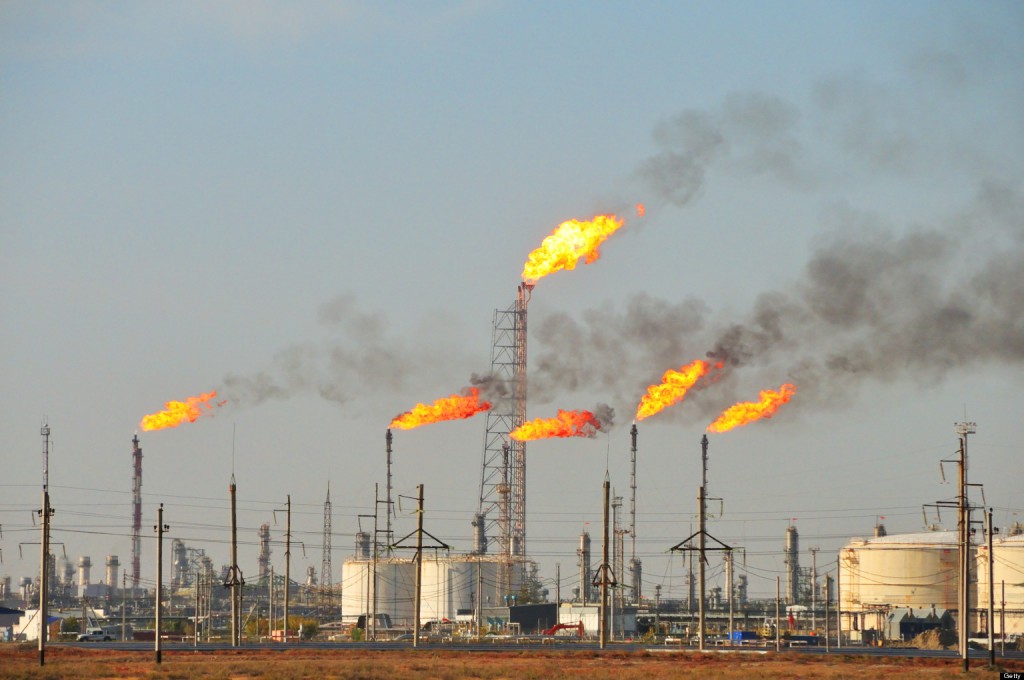To eliminate gas flaring in the country, Nigeria’s bid process for 49 flare sites with about 300 million standard cubic feet of gas a day will end in April 2023.
Handled by Nigeria Gas Flare Commercialization Programme (NGFCP) 2022, the flare commercialization initiative is aimed at driving Nigeria’s target to end routine gas flaring this decade, supporting the Nigeria Energy Transition Plan (ETP) and creating value from its gas resources.
The Nigerian Upstream Petroleum Regulatory Commission (NUPRC)’s Chief Executive, Mr Gbenga Komolafe said this at the sixth edition of the Nigeria International Energy Forum (NIEF 2023) with the theme, Global Perspective for a Sustainable Energy Future.
Read also: MOSOP Decries Impact Of Gas Flaring, Oil Spill In Niger Delta
Komolafe spoke on Thursday at the Upstream Forum tagged “Pivoting Upstream Petroleum Regulations and Investments,” which dwelt on strategies on energy sustainability roadmap.
‘‘Also, the Nigeria Gas Flare Commercialization Programme (NGFCP) 2022 bid process for 49 flare sites with a combined volume of about 300 million standard cubic feet of gas per day is expected to be concluded in April 2023,’’ he said.
‘‘In this gas flare commercialisation journey, he said, the Commission has partnered with relevant global players to leverage the carbon credit market mechanism that should improve the bankability of some of the flare elimination projects.’’
According to him, ‘‘With the attractive fiscal, legal and regulatory provisions in the PIA, vast opportunities for investment abound for investors to leverage.
‘‘Some of these opportunities include the development of deeper hydrocarbon opportunities, conversion of producing marginal fields to Production Mining Leases (PMLs) and clear definitions for domestic supply and delivery of crude oil and gas respectively to create potential for a robust domestic market to mention just a few.’’
The commission’s Chief Executive noted ‘‘In addition, the Commission is currently engaging all lease holders on their natural gas elimination and monetization plan to ensure compliance with Section 108 of the PIA and boost supply to the rapidly growing gas market.
‘‘We have continuously encouraged investors to leverage on the generous fiscal incentives in the PIA, such as zero hydrocarbon tax, reduced royalty rates based on production and across terrains, tax consolidation provisions amongst others and take final investment decisions on their proposed upstream projects.’’
Komolafe stated that ‘‘With a proven gas reserve base of 208.62TCF (as of 1st January 2022), we are on track to increase our reserves volumes to 220TCF in less than 10 years and 250TCF thereafter.
‘‘Our drive to increase our Gas Reserves and Production from its current volumes to meet the future energy demand of the country and the international market offers a huge investment opportunity not only for the exploration and development of our vast gas resources, but also for the creation of the much needed infrastructure to utilise the gas within the country as well as earn revenue for further development of our renewable resources.’’
‘‘Permit me to express that the PIA provides for approval of only projects with gas utilization plan in the upstream sector.
‘‘The Commission is already enforcing this statutory provision in a manner to attract the multiplier economic benefits to the Nigerian economy. We have intensified our efforts towards eliminating flared gas while arresting methane and other fugitive gas emissions.
‘‘The significance of this is that more gas would be available for domestic utilization as Liquefied Petroleum Gas (LPG), feedstock for power generation plants, fertilizer plants and petrochemicals to mention but a few. Each of these areas provides a unique entry point for willing investors and opportunities to build capacity locally,’’ he explained.
The NUPRC’s boss expatiated ‘‘Further investments opportunities have been created with the successful completion of the 2020 Marginal Field Bid Round. The Commission is engaging the awardees to ensure early field development.
‘‘Similarly, the ongoing mini bid round for seven (7) Deep Offshore Petroleum Prospecting Licences (PPLs) is expected to be concluded early Q3, 2023 and will boost the Nation’s Reserves as well as bring about anticipated benefits to the Nation and other stakeholders.’’

